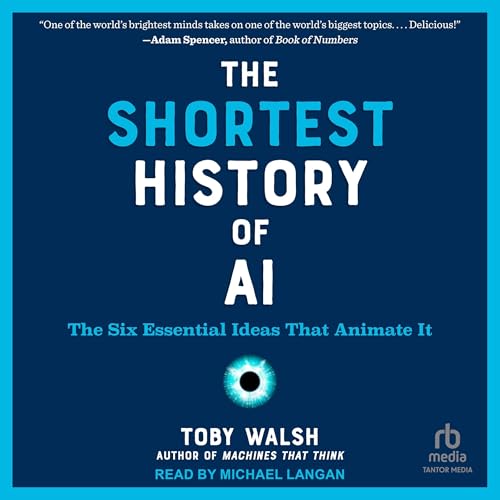
The Shortest History of AI
The Six Essential Ideas That Animate It
Échec de l'ajout au panier.
Échec de l'ajout à la liste d'envies.
Échec de la suppression de la liste d’envies.
Échec du suivi du balado
Ne plus suivre le balado a échoué
0,99 $/mois pendant vos 3 premiers mois
Acheter pour 22,26 $
-
Narrateur(s):
-
Michael Langan
-
Auteur(s):
-
Toby Walsh
À propos de cet audio
Since Alan Turing first posed the question "Can machines think?" artificial intelligence has evolved from a speculative idea to a transformative force. The Shortest History of AI traces this evolution, from Ada Lovelace's visionary work to IBM's groundbreaking defeat of the chess world champion and the revolutionary emergence of ChatGPT. It also explores AI's cultural journey, touching on classics such as Frankenstein, A Hitchhiker's Guide to the Galaxy, and 2001: A Space Odyssey.
Revealing how many "overnight" successes were decades in the making, this accessible and illuminating book helps us to understand how AI functions by explaining the six key ideas that animate it: it searches for answers using predetermined symbols and means-end analysis; it bases its answers on what sort of response it thinks it will get; it follows a set of rules in order to simulate human expertise; it copies the human brain by learning from experience; it uses reinforcement learning, rewarding its own successes and punishing itself for its failures; and it uses Bayes' theorem to calculate the probability of a cause based on its effect.
Fast-paced and rich with facts, The Shortest History of AI equips listeners to understand where we've been—and where we're headed.
©2025 Toby Walsh (P)2025 Tantor Media

